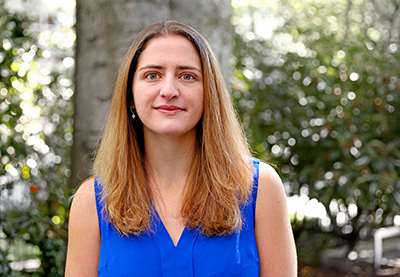If you or someone you know is being abused, contact Project DVORA at (206) 861-3159.
Domestic violence legal services are in short supply in the Puget Sound region. Liz Coleclough, Director of Project DVORA and Counseling & Addiction Services, sat down with us to talk about a new service to help address the needs of domestic violence clients at JFS.

Why is Project DVORA adding domestic violence legal services?
One of the major barriers survivors face when domestic violence occurs is that, inevitably, a legal scenario is going to emerge. This is especially true if they are married to the abuser and/or share children with the abuser. Survivors are often coming in at a real disadvantage because the legal system is complicated and not user-friendly. And, for a person who has a history of trauma, that’s going to be even more overwhelming.
Survivors also come in facing many other logistical complications that result from trying to exit a relationship. Where are they going to live? How are they going to take care of their children and navigate single parenting? Are they going to have to get a job, or if they already have a job, what do they need to tell their employer? A survivor is already navigating all these areas of complication, and then you add the legal piece to it, and it feels extremely overwhelming.
Beyond all of that, survivors often face abuse and control within the legal system because they don’t have the same financial resources as their perpetrator. Most of our clients face civil situations, and unlike a criminal situation, they are not entitled to an attorney. So, the survivor does not have resources to access or afford legal counsel, while the perpetrator does. This allows the system of power and control that have been a part of the abuse to continue.
How have you seen this play out with DVORA clients?
There are so many times we see this kind of abusive litigation, but I’ll share one that really stuck with me. It was a case that lasted for the better part of a year. Our client had a pre-school aged child with her abuser, and there was already a court-ordered parenting plan in place. But, every couple of weeks or so, there was another court filing from the child’s father — on false grounds or no grounds at all.
This was combined with his lack of child support payments. He was granted supervised visits with the child, but we noticed the supervision agency had aligned with the father, and the result was that he was able to skirt the rules of scheduling and compliance. Her life and the life of her child became completely unpredictable. There was no stability for that child.
In watching what this woman and her child went through, I kept waiting for the court to say, “no.” Her abuser kept coming to court and losing, but his plan wasn’t to win. His plan was to force a response that required money, that required energy, that required time. And, the court never said, “no.” It was a real learning experience for me of just how far an abuser could push the system if he wanted to.
In thinking about this woman and others like her, how did you go about creating DVORA’s domestic violence legal services?
We worked closely with the civil legal aid organizations we already partner with to design our service.
We’re drawing on our learnings to develop our own triage model. On a scale where every client is vulnerable, the largest group that is the most functional will have legal consultation that prepares them to represent themselves in court. Another significant portion of clients might receive temporary representation directly from the attorney. And, for a few clients with the highest level of vulnerability, the goal is for our attorney to represent them all the way through.
What distinguishes the Project DVORA legal model from others in the Puget Sound region?
I think the thing that will make our legal services stand out is that they are embedded in a domestic violence program. We have advocates. We have flexible financial assistance. We have clinical therapists, including one specializing in children and youth. That wrap-around model is not common, but it is considered to be a best practice.
What benefits do you hope DV survivors receive?
When an attorney is on site where survivors receive other services, client attrition decreases. The ability of a client to continue a case with an attorney increases because that survivor has to go to only one place. And, it’s a place where she has already established trust. Our attorney is on the same team as our advocates and mental health clinicians, so the opportunity to coordinate, collaborate and use our connected values in support of our clients really makes this special.

Who is the lawyer at the heart of DVORA’s domestic violence legal services?
Hannah Rosenberger has a civil legal aid background. She built and managed a program focused on disabilities and homelessness at the Seattle Community Law Center. She has experience navigating complicated systems for people who have close to nothing. We’re branching out into something new, so we are really lucky to have someone like Hannah, someone who has an entrepreneurial mindset and the character needed to fight for the most vulnerable.
“Crime After Crime” focuses on a survivor caught up in the criminal justice system. Since JFS mainly sees clients with civil legal challenges, why did you choose a movie focused on the criminal justice system to be part of Domestic Violence Awareness Month?
The movie really struck me as a valuable case study in the imbalance of power. Whether it’s in the civil or criminal justice systems, there’s that same pattern of the imbalance of power. If you come in without power, you often continue to be without power, and then the system re-victimizes you.
The documentary captures that path very well. And, we know that a disproportionate number of women who are incarcerated, especially for homicide, are there for the deaths of persons who were abusing them for years. The movie shows that, so often, systems that are supposed to be designed to protect people, don’t.
If you or someone you know is being abused, contact Project DVORA at (206) 861-3159.
Thanks to our partners for their help in developing this legal service: Coalition Ending Gender-Based Violence, Eastside Legal Assistance Program, King County Bar Association, Northwest Justice Project, YWCA, and lawyers from the JFS Board of Directors, including Michael Adler, Rochelle Goffe, Carol Gown and Avi Lipman.



